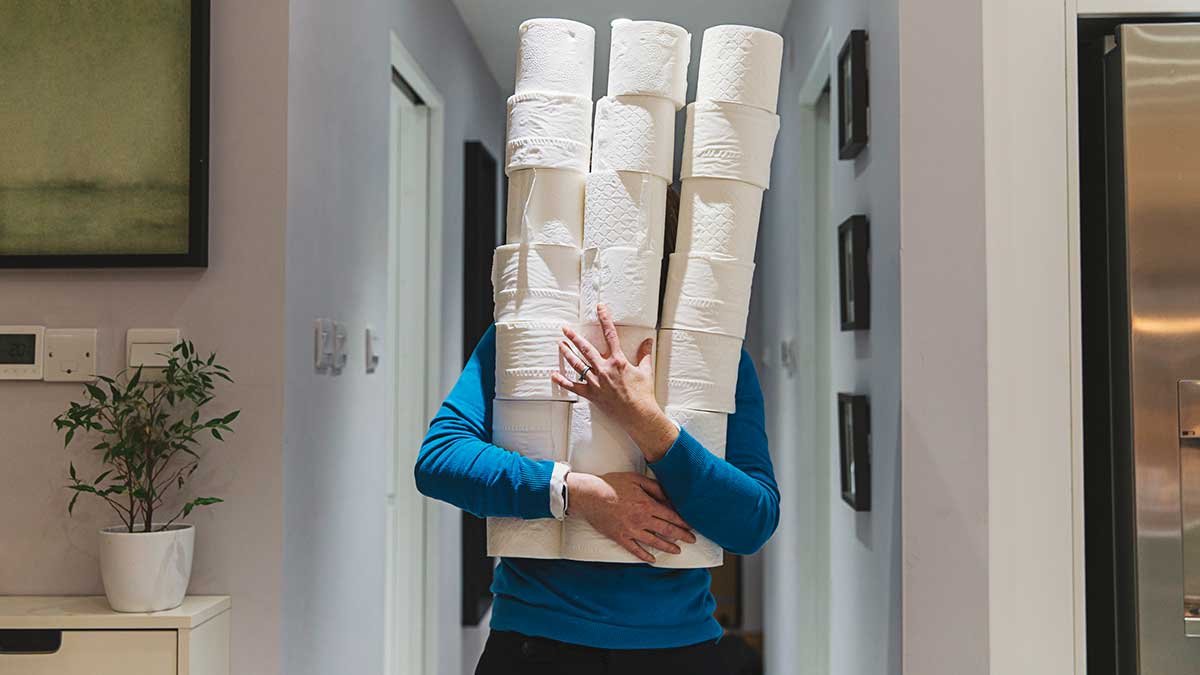From Gen Z spring breakers to toilet paper-hoarding boomers, here’s how each generation is dealing with it

Image: Getty
How you’re handling the coronavirus pandemic might depend on how old you are.
That’s largely because coronavirus risk increases with age.People over 60 are at greater risk of becoming seriously ill than younger folks who don’t have underlying health conditions (those who do have preexisting conditions are also at higher risk). People in their 80s and 90s – those considered to be members of the Silent Generation and the Greatest Generation – are at the highest risk.
These risk groups, combined with life stage and identity, have left the biggest generations facing the pandemic on their own terms. Younger generations, like Gen Z, think the coronavirus isn’t a big deal for them, so they crowded beaches during March for spring break. Meanwhile, millennials are worried about their parents, many of whom fall into the aforementioned high risk group.
Gen X says they’re the only generation well-equipped to handle the pandemic, as they have survived several world crises and need to serve as a role model to both their children and high-risk parents. But baby boomers, who fall into these high-risk groups, are having trouble staying indoors because they just don’t feel their age.
Here’s how each group is dealing with the pandemic.
Gen Z has been busy partying it up on spring break, ignoring coronavirus warnings.
In March, Gen Z received a lot of backlash for ignoring coronavirus warnings and social distancing rules. College kids were crowding beaches everywhere from Florida to Texas to live up their spring break, and spring breakers were also spotted partying on booze cruises in The Bahamas.
Jawontae Rodgers, a 21-year-old who spring breaked in Panama City Beach, told Valerie Crowder of local outlet WFSU he didn’t think the virus was a “big deal.”
“I’m not saying I can’t die from it,” he said. “I just don’t want to stop living my life because you only have one. YOLO: You only live once.”
But this attitude has helped spread the coronavirus. A group of 70 spring breakers chartered a plane from Texas to Cabo in mid-March – 44 of them have tested positive for the coronavirus so far.
Gen Z has also come up with a whole new set of slang to describe the coronavirus pandemic, reported Business Insider’s Dominic Madori-Davis, from “Miss Rona” to “boomer remover.”
Meanwhile, many millennials are staying inside and urging their parents to do the same.
“Millennials are not partying,” tweeted National Review reporter Mairead McArdle. “We and our anxiety issues are holed up working from home, watching Hulu, and yelling at our parents not to go outside.”
The coronavirus pandemic is forcing many millennials to reckon with the fact that their parents are ageing and could be considered at-risk individuals. Several told Business Insider’s Hayley Peterson they are worried about their parents’ health, voicing frustration in trying to convince them to stay inside.
Like Gen Z, millennials are also turning to memes as a coping device during the pandemic – like taking to Twitter to make fun of hoarding boomers.
“As we’ve adjusted to this strange new reality, in which many of us might not be allowed to leave our homes for weeks, we’ve channeled our anxieties over COVID-19 into classic internet humour,” Aja Romano wrote for Vox.
But on a more serious note, millennials are being more watchful of their money. While those of all generations are concerned about the financial effects of the coronavirus, “millennials’ behaviour is changing more dramatically than any other generation,” Greg Petro, CEO of retail analytics company First Insight, told CNBC’s Lauren Thomas. “They are going to cut their spending.”
Gen X’s risk-averse upbringing has made them well-equipped to handle the pandemic.
“As the generation raised in the age of stranger danger and Just Say No, our inherent risk aversion is finally being recognised as a great strength and asset to the survival of the species,” wrote Megan Gerhardt, professor of leadership and management at Miami University, in an opinion piece for NBC News.
Her generation, she said, has taken to Twitter to proclaim how they were made to handle this crisis.
“We survived Reagan, the crack epidemic, the AIDS epidemic, the War on Drugs, mass incarceration, the S&L collapse all the while living on nothing but PB&J and ennui,” tweeted Daryl Sturgis. “The other generations should follow our lead on this one.”
Gerhardt wrote that Gen X is well-equipped for the pandemic for three reasons: They have had experience riding out the historic crises mentioned above; weren’t raised with the overscheduled life of millennials, which has left millennials feeling directionless in a pandemic; and are well-incentivized to stay home to serve as a role model for the parents and children they’re caring for.
“Generational identity and life stage are both contributing to how we are reacting to our current reality,” Gerhardt wrote.
Baby boomers are trying to socialise with their friends and hoard supplies.
Some baby boomers have been busy trying to socialise with their friends – at least according to their children.
Jared, 31, told Peterson: “Literally was fighting with my mum this morning about her a) going to Atlantic City last weekend; b) going to another casino via bus this weekend; and c) a cruise in April she refuses to cancel.”
Alessandra, 32, also told Peterson her 67-year-old mother, who lives in a golf community in Florida, had refused to cancel trivia plans with 300 of her friends who had all travelled outside the US within the last three months.
The thing is, boomers just don’t feel the age that they actually are. “Naturally, some boomer parents are bristling a bit, despite all of the expressions of love and concern,” Kathleen A. Hughes, a 64-year-old, wrote for The Wall Street Journal. “They are bristling both at the idea that they are elderly and at the fact their offspring are suddenly telling them what to do.”
The coronavirus outbreak has prompted many people to unnecessarily stock up on goods. Boomers in particular have been panic buying toilet paper and hoarding other supplies, despite governments and suppliers warning people not to do exactly that.
This article first appeared on Business Insider Australia, Australia’s most popular business news website. Read the original article. Follow Business Insider on Facebook or Twitter.
Related Topics
UNLOCK INSIGHTS
Discover the untold stories of emerging ASX stocks.
Daily news and expert analysis, it's free to subscribe.
By proceeding, you confirm you understand that we handle personal information in accordance with our Privacy Policy.








